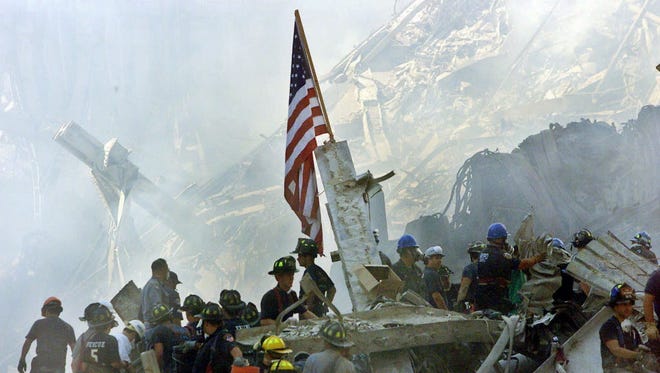House approves bill letting 9/11 families sue Saudis

WASHINGTON — The House voted Friday to approve legislation allowing 9/11 survivors and family members to sue Saudi Arabia in connection with the attacks.
The Justice Against Sponsors of Terrorism Act (JASTA) passed the House by voice vote and now goes to President Obama, who has threatened to veto it. The Senate unanimously passed the same bill in May.
Obama says the legislation could open the door for other countries to allow lawsuits against Americans in courts abroad and would jeopardize U.S.-Saudi relations. But Congress has enough votes for an override.
House to vote this week on letting 9/11 families sue Saudis
House lawmakers appealed to Obama not to veto the bill, saying it's narrowly drawn and merely seeks to clarify 1996 legislation that allows families of terrorism victims and survivors who suffered injuries to sue for damages in federal court under an exception to the Foreign Sovereign Immunities Act of 1976.
That exception revoked jurisdictional protection for governments determined to be state sponsors of terrorism. It's been in effect for 20 years without any problems, said New York Democratic Rep. Jerrold Nadler.
Nadler said the legislation approved Friday would remedy "an erroneous court decision'' that rejected an effort to investigate the Saudis' possible role in the 2001 terrorist attacks. In September, U.S. District Judge George B. Daniels of the Southern District of New York said the court lacked jurisdiction.
"The legislation gives access to the courts, to the rule of law,'' said Republican Rep. Ted Poe of Texas. He said it would be up to a jury to decide if the Saudis were involved in the attacks.
The surviving terrorists involved in 9/11 have been held in military detention at Guantanamo Bay in Cuba, where they are awaiting trial. But others who helped plan and finance the attacks haven't been identified or tried in U.S. courts, according to the families of 9/11 survivors and victims.
15 years after Sept. 11, the questions that still remain in our minds
Family members of 9/11 victims say the legislation would allow several lawsuits — consolidated into one case on behalf of 9/11 victims and several insurance companies — to proceed, as lawyers attempt to prove Saudi government involvement in the terrorist plot.
Former U.S. Attorney General Michael Mukasey, who served as a federal judge for 18 years, said Friday, “The notion that the Saudis would have financed an attack by this group is ridiculous.’’
“Osama bin Laden, when he listed the reasons for the attack, the first reason was the presence of American troops on the Arabian peninsula.’’ Mukasey said. “They were there at the invitation of the Saudi government.’’
Mukasey doubts the law would get its intended results.
“If the Saudis get put in a position where they have to disclose diplomatic communications and stuff like that, they may prefer to write a check rather than get involved in litigation,’’ he said. “And that’s not any indication they did anything. I firmly believe they didn’t. It doesn’t make any sense.’’
The Obama administration in July declassified 28 pages of the report from the 9/11 Commission that pointed to multiple links between the terrorists and associates of Saudi Arabian Prince Bandar, the former longtime ambassador to the United States. The report also mentions possible conduits of money from the Saudi royal family to Saudis living in the United States and two of the 9/11 hijackers in San Diego. The documents also indicate substantial support to California mosques where radical Islamist sentiments ran high.
Rep. Lloyd Doggett, D-Texas, noted Friday that 15 of the 19 hijackers who participated in the 2001 attacks were Saudi, and he said Saudi Arabia has a long history of funding terrorism.
Declassified 9/11 pages show ties to former Saudi ambassador